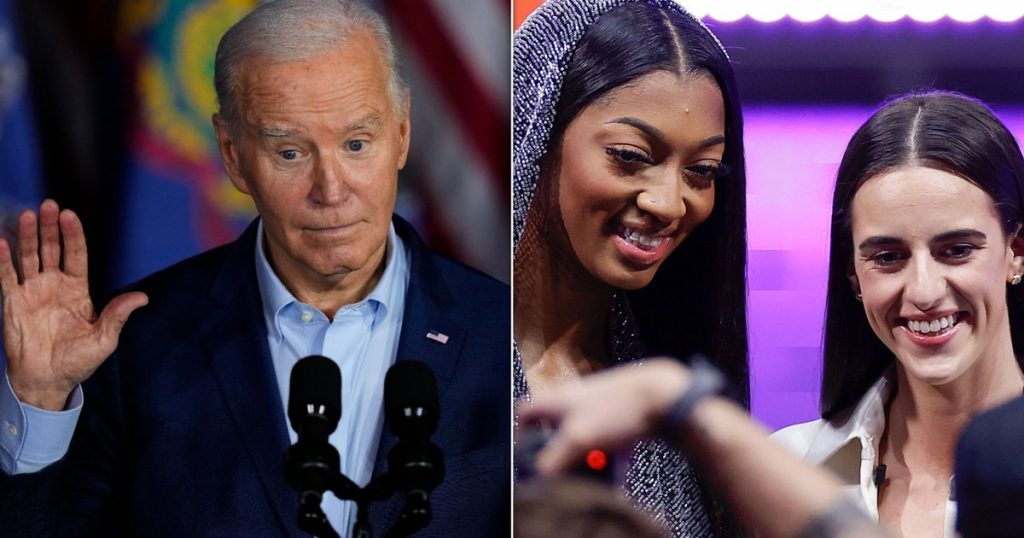President Joe Biden recently highlighted the pay gap between men and women in sports, specifically addressing the criticisms surrounding the salaries of WNBA players. He emphasized the need for gender equality and fair compensation for female athletes, stating that it is time to give daughters the same opportunities as sons. This message came after Spotrac published a graphic showing that the No. 1 pick in the 2024 WNBA draft, Caitlin Clark, is set to receive less than $80,000 for her rookie year.
The current WNBA rookie salary structure reveals a significant disparity when compared to the NBA. While WNBA rookies in the top draft picks are set to make around $76,535 in their first year, NBA rookies can start at roughly $10.13 million. This stark difference in pay has sparked outrage among fans and athletes, with many calling for more equitable compensation for women in professional basketball. Despite potential endorsement deals, the pay gap remains a prevalent issue within the sports industry.
Prominent figures, such as Pittsburgh Steelers quarterback Russell Wilson and sports journalist Jemele Hill, have voiced their support for WNBA players and the fight for better pay. Wilson emphasized the deserving nature of female athletes, while Hill criticized comparing the profitability of the WNBA to the NBA as a rationale for unequal pay. She highlighted the importance of WNBA players receiving a fair share of the revenue generated by the league, rather than striving for identical salaries to their male counterparts.
WNBA players have been advocating for improved pay and investment in women’s sports for years. Skylar Diggins-Smith, a player for the Seattle Storm, called for solidarity in the fight for equitable compensation, stressing the need for more diverse voices in sports media and administration. The efforts of WNBA players to raise awareness about the pay gap have gained traction, especially as more athletes, like Clark, Brink, Cardoso, and Reese, shine in their careers and attract large viewership.
The surge in popularity of women’s college and professional basketball has been evident, with this year’s NCAA championship attracting more viewers than the men’s equivalent for the first time. The recent WNBA draft also broke viewership records, indicating a growing interest in women’s sports. These developments underscore the potential for increased investment in women’s athletics and the necessity for fair compensation for female athletes. President Biden’s call for gender equality in sports reflects a broader movement towards empowering and recognizing the contributions of women in the athletic realm.


